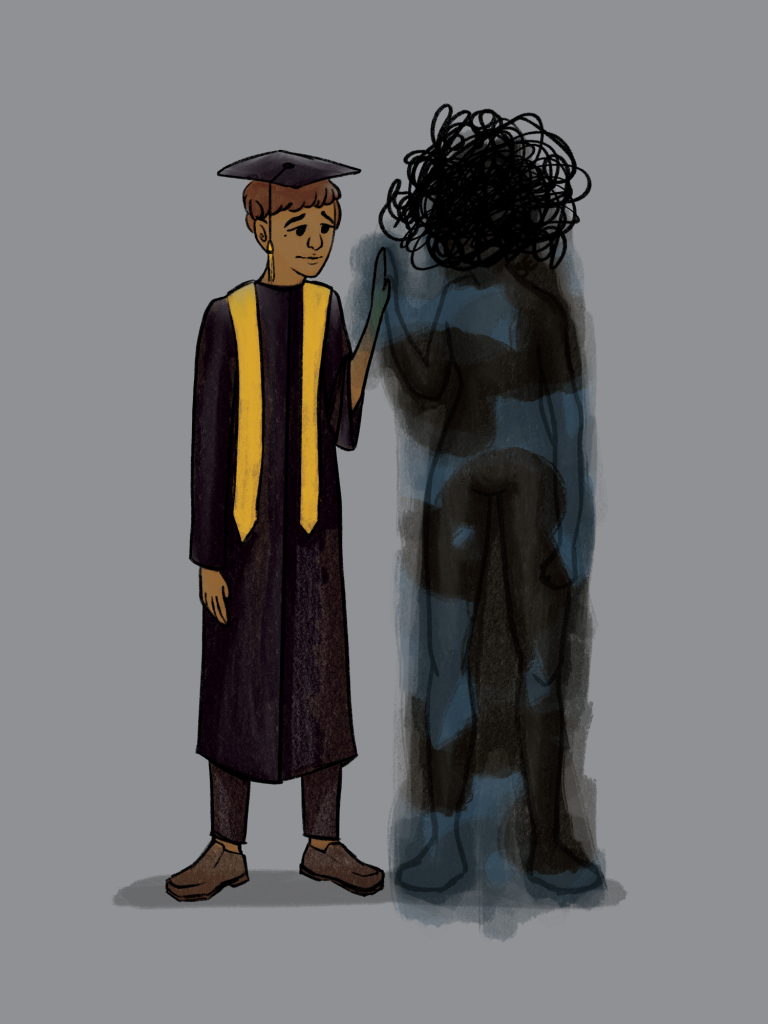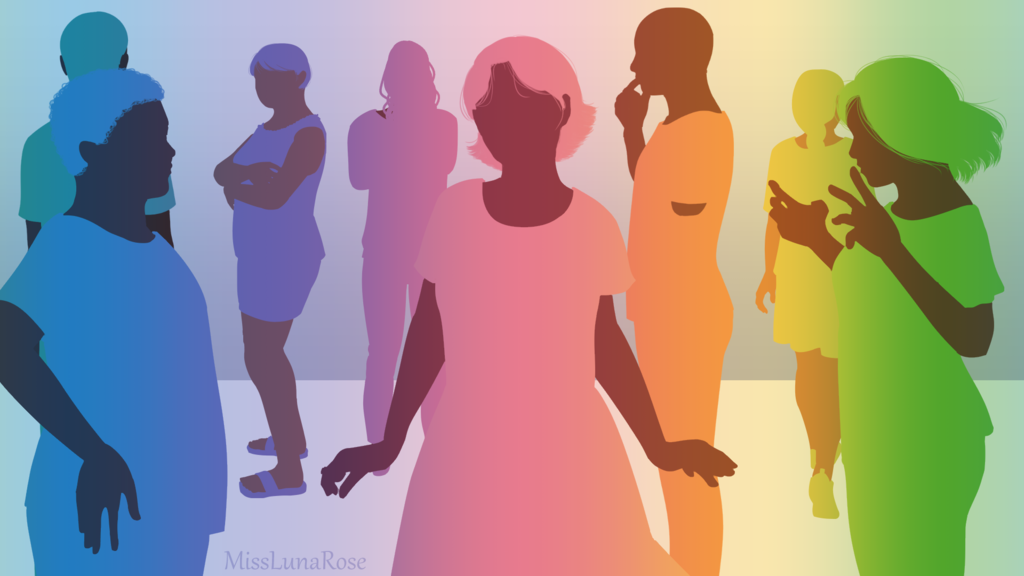Tips for the neurodivergent college student
A short compilation of tools and resources to deal with flare-ups and bad days.

I think we can all agree that the past few years have been rough for everyone. These have also been the years where mental illness diagnoses have grown exponentially and continue to do so. People are becoming more aware and seeking help for these conditions, we also must accept that modern life tends to take a toll on those of us who are neurodivergent.
According to Oxford Learner’s Dictionaries, neurodivergence is “the idea that people with brains that work differently are part of the normal range in humans.” Neurodivergent people are those who have learning disabilities, chronic mental illnesses and/or who are on the autistic spectrum. The truth is, most neurodivergent people find themselves masking most days, which is camouflaging symptoms and behaviors to be socially accepted. This can lead to mental or physical exhaustion and symptom flare-ups. Here are some tools that have helped me cope with the day-to-day as a neurodivergent person myself.
Somedays, simply getting out of bed seems impossible. Showering and eating feel even more impossible. I find that in these moments, meeting yourself halfway is the most realistic and effective method. Tell yourself that even the smallest step forward gets you out of where you were. So, instead of showering, sit down and let the water fall over you. You can also use dry shampoo and wash your face instead if getting in the shower feels like too much. Can’t get yourself to brush your teeth? Gargle mouthwash instead. Don’t want to change clothes? Put on your favorite pair of sweats and comfortable shoes.
If your appetite is being affected by a flare-up, eat your favorite snacks. I find that sweets are easier for me to taste and digest, so I make myself sweetened coffee. I eat granola cereal and dried fruit because that’s relatively healthy, and I get myself granola bars or cookies for the rest of the day. If the symptoms are really bad and you have no appetite, Ensure and other nutritional shakes are extremely helpful. Smoothies are also great. I find it helpful to think about whatever meal you’ve been craving before today; treat yourself to something you know you’d enjoy. Remind yourself that you deserve to enjoy your meals, and not feel guilty about eating. Your body is worthy and deserves to be healthy.
Words of affirmation are also extremely important. Something as small as validating yourself with a “good job” or “you look great” can go such a long way. It’s important to surround yourself with that energy as well. I downloaded an app called “I am” that allows you to place widgets on your phone, as well as send you notifications with comforting messages throughout the day. Even if you don’t actively sit down to read through them, they’re always there in your peripheral vision. When you find yourself needing those words, you can simply click on a widget and read through the quotes of your choice.
Another tool I find myself using whenever I’m feeling anxious or uneasy is changing my environment. Sometimes, you might not be able to control what you are feeling so you can find that control outside of yourself. Stop whatever you are doing at that moment to stand up, take a deep breath and step outside for a bit. This is especially helpful if you are working on assignments and feel the anxiety building up.
There are others who find themselves taking too many breaks and struggle with concentration; putting behind work until it piles up. In this case, working in intervals or “sprints” is super effective. Giving yourself a designated time during the day to do assignments or work can help your mind understand that time to be specifically for that task. You can adjust how long or short the time is, and how often you do these sprints in a week. Using alarms and timers will also help keep you on task.
Reaching out for additional help and support is one of the most important things you can do as a neurodivergent student. Reassurance coming from these support systems is also extremely important whenever struggles arise. Support can come from your family, friends, school counselors, medical professionals and even pets. After all, help comes in many different forms.
UWT offers a service for those of us who struggle to keep up with school due to our disabilities. The DRS (Disability Resource Center) aims to help students get accommodation for classes so that they can succeed during their academic years. I myself have applied for this service and received help in past quarters but have found it very difficult to keep up with their system.
Documentation and proof of disabilities is required for student accommodations and takes a few weeks to be processed. In certain cases, they’ll ask for extra documentation. I was one of those cases, as they asked my doctors for written and signed letters with my diagnoses and symptom descriptions. While waiting for my doctors to find the time to write and send the letters, it only prolonged the waiting period to have accommodations in my classes.
When it comes to testing accommodations, you are required to schedule these tests days or weeks in advance. These allow for about an extra half hour to an hour of testing time (depending on your disability). You also have to take tests inside the testing center, not in the classroom. This extra work – for me – made the situation even more stressful, especially when I found it difficult to even write emails.
I feel it fair to mention all of this because our students deserve to know about the experience of our campus’s main disability resource. Me and many of my peers have agreed that this service needs to be updated and refined, as many students prefer to simply deal with things themselves or talk to teachers directly.
Honesty is the most effective way to find help. For the most part, teachers and others can be understanding. If they’re not (or decide to be rude about it) there are options to help you navigate that such as counseling and therapy. No one should have to struggle more just because they have a disability. I encourage everyone to be more open about the way they work or study, how things work and don’t work for you. Seek help inside your own community during bad days. Most of all, be kind to yourself. We are all doing our best and going at our own pace. Ultimately, that is what matters.



